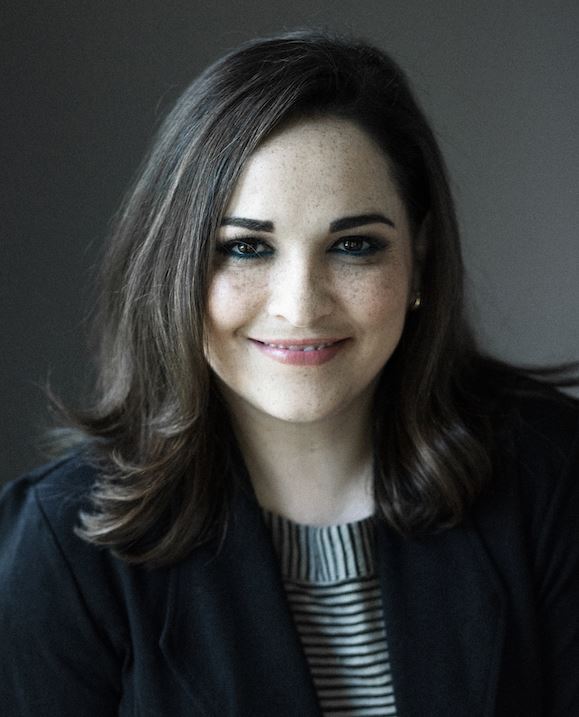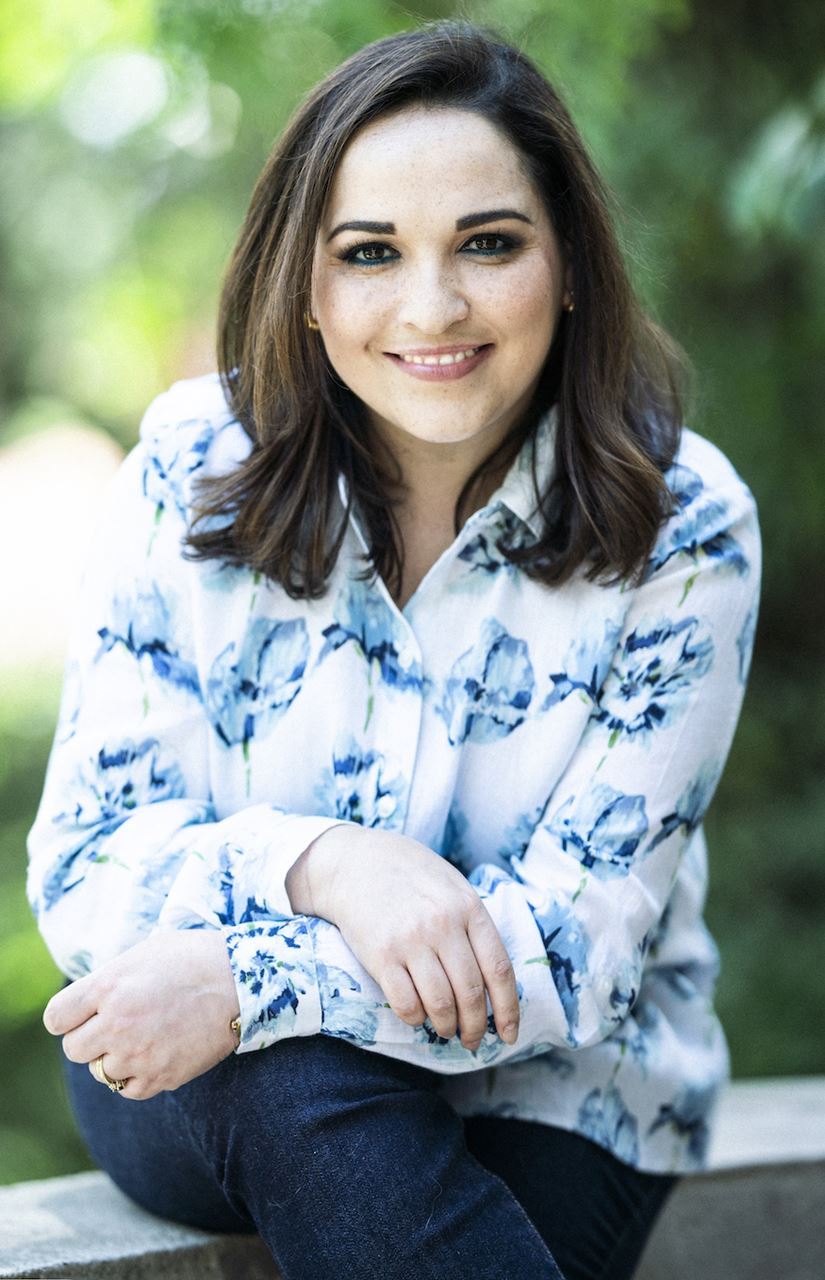 Back to Summer 2023 Newsletter
Back to Summer 2023 Newsletter
Interview with Leila Wooley, LPCC
by Liliana Ramos, LMFT, Director-at-Large
Leila Wooley is a Clinical Psychologist in Guatemala where she worked with teenagers and adults. After arriving in California, she pursued a Master’s program at Palo Alto University, focusing mostly on teenagers and adults during the licensing process. Now, as a Licensed Professional Clinical Counselor, she works with adults from 18 to 80 years old at Kaiser Permanente Psychiatry Department and at her private practice. While working towards her licensure, she had the opportunity to receive training on inherited family trauma from Mark Wolynn, an expert in this field. Today, she works from a client-centered, strength-based, somatic, and multicultural approach. As a Latina psychotherapist, she recognizes the value of cultural humility in her work, since this allows her to learn and understand her clients values and how they view themselves in the world.
Leila works with older adults from a cultural lens, which requires her to be more curious about where the client is coming from and how they perceive this stage of their life. In addition, she looks at their health, finances, support network, and activities. She also explores how they perceive all the losses that they have experienced in their life. Are they starting to lose many of their friends or how are their roles or what are the contributing factors to their health and independence? She believes that by finding out all of these areas in their life, she is honoring where her older adult clients are at this point of their life.
Since she is a Latina and many of her clients are Latinos, she finds that Latinos may have a higher resilience due to the fact that in the Latino culture, families take care of each other. The older adults are being taken care of, as well as having the responsibility of helping with the care of the children and doing household chores. This keeps the older adult active and gives them a purpose. In addition, they have their religious faith which helps them find meaning in their life experiences. She understands that there are various other cultures that take care of their elderly family members.
Another lens is grief. She feels that when she works with grief, finding meaning in the hardest situations is essential. Like Viktor Frankl wrote in his book Man’s Search for Meaning, having a purpose makes it easier for a person to tackle life’s hardships. For Leila, her personal grief helped her as she trained at Pathways Health and Hospice in Sunnyvale. She herself was grieving when she moved to the United States. She felt depressed and anxious as she recognized that she was grieving for the country AND FAMILY that she left behind. Leila said: “I think that working with grief is beautiful. People come at the most vulnerable time and can do the deepest work. They shift. Grief gives us the sense of connection. Realizing that we will always grieve but the intensity will change with time.” She teaches her clients how to live with their grief, by understanding it and allowing themselves the time they need to grieve.
Leila finds that older adults have grief in their lives because of the cumulative losses that they have experienced throughout their life. She said that it starts even with the loss of their role, or perhaps they are no longer working or part of a community. Moreover, they might have become the caregiver of their spouse or partner or lost their independence because now people have to take care of them. Slowly, things they used to do are being taken away. Many of these losses might be occurring at the same time. Leila describes the experience like a lasagna made of layers and layers of losses. She suggests it is helpful to do a life review timeline to see the things that have happened in their life. In addition, she found that the pandemic was a wake-up call. She recounts the beginning of the pandemic where older adults had to learn how to use Zoom in order to attend grief groups. It was their only way to connect because they couldn’t leave their homes and connect with their loved ones and community. Plus, their families would not visit because they were scared of getting them sick. It magnified their entire experience of loss and isolation.
I wondered what made her decide to work with older adults and their grief. Leila narrated how her family is Jewish and living in Guatemala. Guatemala was one of the places where they could go to during WWII. One thing she observed about Holocaust survivors is that they do not speak about grief. In her family, when someone dies, they don’t talk about it. People have this expectation of ‘I should be done with this.’ For Leila, as she started doing her own work, she realized that there are a lot of rituals in Judaism when someone dies. So she found that learning more about rituals helped her clients identify their own or even create new ones to honor their loved ones.
She added that older adults who remain engaged and connected physically and mentally are mentoring us on how to grow old with grace. We can see how parents and grandparents model how we can have meaning in our lives as older adults. By watching this unfold, it is not as scary for the younger generations. Leila finds that working with older adults gives us a good sense of what resilience looks like.
Since people are living longer these days, it helps if individuals initiate conversations with the older adults in their families. A conversation about what they want when they die or how they want to be taken care off when they can no longer stay in their home. Leila says that in the Latino culture, people in their 40’s and 50’s say that their parents’ health is declining and they do not want to move out of their homes. Adults struggle to approach their elder parents, as they are not ready or equipped to have those conversations, so it is causing distress in the younger generation. Older adults who are financially stable think that their independent living is the last thing that they are going to take away from them. Especially with older adults where their children are spread out, it means leaving their home and moving to another state or possibly another country. So, having these conversations with older adults is crucial, asking ‘what would give you peace if you were able to choose how to live and die.' Most older adults avoid talking to their adult children about these topics. Adult children may not want to think about it or know how to start these conversations. So it’s good to have clinicians help the older adults or their children begin these conversations.
Sometimes, older adults are worried about what death looks like. To complicate things, they might be taking care of their adult children. This brings an extraordinary amount of anxiety and fear. What will happen to their adult children? Or perhaps how will the money be split? Or they worry about their adult children NOT honoring their wishes. Some of them lost their partners and are looking forward to when they can join them in death. We have to remember that these individuals are complex. There will be many situations which will be a first for them. Furthermore, everything in the house brings them memories and the world is changing.
Leila finds that providing therapy to older adults is a rich experience. She encourages clinicians who want to work with grief to do their own work in therapy regarding aging and grief. As a therapist, one can start thinking about one’s family and how one will cope when that happens. For Leila, it was natural to process death during therapy. Making sure therapists get the support they need, because it is heavy work, is an important aspect of this enterprise.
In summary, just like with any population, there are commonalities. There are certain themes to work on and explore like death, grief, and aging. It is one of the age groups for whom going back to values, background, and culture will guide a lot of the work we do because that is very ingrained in their stage of life. It is mostly working with what they have rather than teaching them new things. It is very hopeful to work with people who have gotten to this stage of life and have so many experiences. For many older adults, there are so many things they are proud of and find meaningful. Talking about their grief, meaning of life, and normalizing their feelings is healing for this population. Likewise, it becomes meaningful for the therapist.
 Leila Wooley currently works at Kaiser Permanente’s Psychiatry Department offering therapy to adult clients. She also has a private practice where she works with adult clients. She is originally from Guatemala City where she practiced as a clinical psychologist working with teenagers and adults. When she moved to the Bay Area in 2010, she decided to pursue her master’s in professional clinical counseling. While working towards her licensure, she had the opportunity to work in hospice, substance abuse, and community health working with the Latino and LGBTQ community. As a psychotherapist, she works from a client-centered, strength-based, somatic, and multicultural approach. As a Latina, she recognizes the value of cultural humility in her work. Since this allows her to learn and understand her client’s values and how they view themselves in the world.
Leila Wooley currently works at Kaiser Permanente’s Psychiatry Department offering therapy to adult clients. She also has a private practice where she works with adult clients. She is originally from Guatemala City where she practiced as a clinical psychologist working with teenagers and adults. When she moved to the Bay Area in 2010, she decided to pursue her master’s in professional clinical counseling. While working towards her licensure, she had the opportunity to work in hospice, substance abuse, and community health working with the Latino and LGBTQ community. As a psychotherapist, she works from a client-centered, strength-based, somatic, and multicultural approach. As a Latina, she recognizes the value of cultural humility in her work. Since this allows her to learn and understand her client’s values and how they view themselves in the world.
References
Devine, M. & Nepo, M. (2017). It’s ok that you’re not ok: Meeting grief and loss in a culture that doesn’t understand. Sounds True Publishing
Frankl, V. (2006). Man’s Search for Meaning. Beacon Press
James, J. W. & Friedman, R. (2009). The Grief Recovery Handbook (20th edition). William Morrow Publishing
Back to Summer 2023 Newsletter
